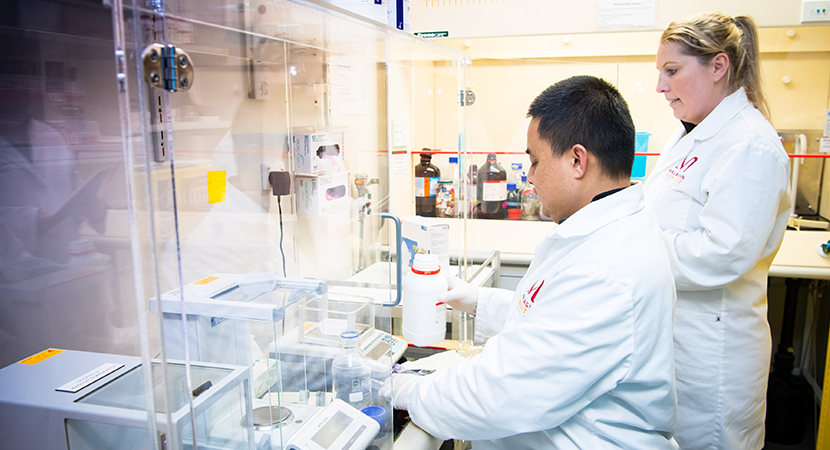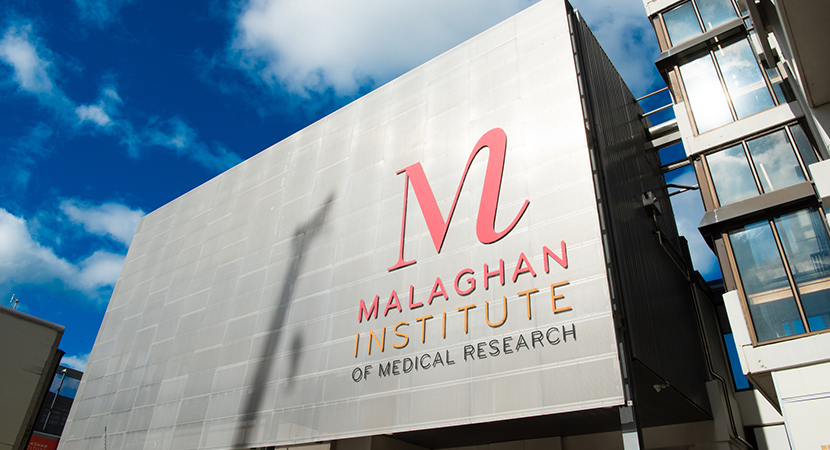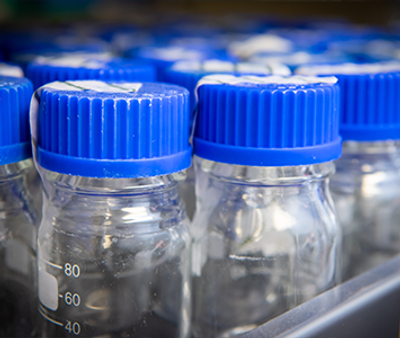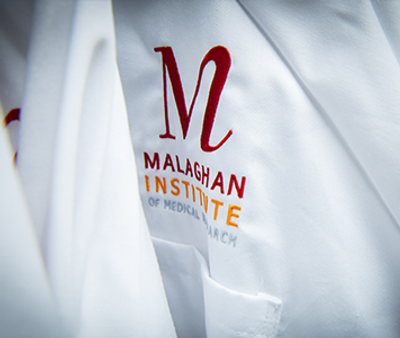With over 100 staff dedicated to the research and development of immunology and immunotherapy, Wellington’s Malaghan Institute of Medical Research is a globally recognised organisation right on our doorstep.
The Institute was established in 1979 from a medical trust first started in 1966 by Tip Top ice cream founder Len Malaghan and his wife Margaret. At the age of 56, Len had been diagnosed with cancer and used his Tip Top shares to create a trust to support research into cancers of the blood.
The trust has since evolved into a world-leading research facility, specialising in the advancement of treatments for illnesses such as asthma, allergies, Multiple Sclerosis, infectious disease and cancer. Len Malaghan’s legacy is continued in its support of quality medical research and improving the lives of all New Zealanders.
Malaghan’s research provides opportunities for postgraduate study and Malaghan students are regarded as world leading in the medical and scientific fields and are much sought after globally. But to support an operation of this scale and continue the glowing track record of innovation requires expertise beyond the scientific.
Of the Institute’s 105 staff, around 60 per cent of them are scientific – because there are a range of other areas of expertise required to make a research organisation world-leading.
Critical Infrastructure
Essential to the Institute’s work are the administrative, support and technical staff that keep the organisation performing at the highest level. Central to delivering the right laboratory conditions, maintaining existing infrastructure along with planning and supervising upgrades and innovations is Malaghan’s Facilities Manager, Darrell Smith.
Smith has been with the Institute for 24 years, abandoning his PHD in Psychology and beginning as a lab assistant in his early 20s. Since then, with the support of Malaghan Institute, he has studied for three degrees, all related to furthering the internal knowledge and capabilities of the Institute.
He says that his environmental science, building science and occupational health and safety qualifications are pivotal to the lab design process as the facility can impact on the activities and aspirations of the staff. He also completed a certificate in animal husbandry that helps establish and perfect the processes around the Institute’s treatment and welfare of animals.
“What is great about the Malaghan staff is for creating labs for any kind of science we have a multi-disciplinary team that can come up solutions and lead the way – and this is across all levels and all staff ” he says.
Smith says that beyond his own knowledge, he’s able to identify the required specialities, and build relationships with the right local partners, needed to maintain its status as a world-class science facility.
Vital Partnerships
One such partnership is with fellow Wellington company UPS Power Solutions, that provides expertise and solutions to ensure clean and uninterrupted power to the Malaghan’s laboratories.
“Having confidence in our power supply is absolutely crucial for us. Tests and experiments can number in the thousands and often require perfect consistency in lab environmental conditions to ensure fidelity of results,” says Smith.
Laboratory experiments require consistent environmental factors such as temperature, humidity and pressure. Scientific equipment is dependent on back-up power provided by UPS systems. He cites the CAR T-cell therapy cancer research programme as an excellent example of the important power requirements.
“The CAR T-cell therapy is very critical; we’re teaching cells to attack the cancer through the immune system . The right patients for this research are also incredibly rare and with so many variables that can jeopardise the results, it’s essential that power supply doesn’t introduce risks to testing precision,” he says.
Cutting edge hardware
In some cases, the UPS solutions deliver additional advantages beyond the provision of back-up power supply. The Malaghan Institute has four PCR machines that use magnetic currents and controlled heating pads to amplify (or copy) DNA. The sensitive equipment heats and cools to encourage the splitting and reproduction of DNA strands, effectively providing more DNA for research and testing.
“Our molecular biology machines are extremely sensitive to power fluctuations and New Zealand’s varying power supply can interfere with the DNA amplification process. Each PCR machine has a dedicated online UPS, that provides power conditioning ensuring a consistent supply of clean power. One drop of DNA and media is worth thousands of dollars and countless hours of work, so the UPSs perform a critical function,” says Smith.
Beyond supporting the vital work done in the laboratories, power is just as important in securing the enormous quantity of data generated by the Malaghan Institute.
Smith says that one experiment can generate several terabytes of data and that the storage and data credibility is critical to both the Institute’s ongoing work and the work of its research partners across the world.
“Proving any of the results or work achieved within our labs means that it must be replicable in any laboratory around the world. The Malaghan Institute collaborates with several other organisations to further research globally and the security and validity of our data is of huge importance,” he says.
New Zealand’s infrastructure unfortunately prohibits extensive use of cloud storage, so the physical storage on-site at the Malaghan Institute is constantly racing the volumes of data generated. Data recall and modelling is critical to ongoing research and investigation so confidence in IT infrastructure is an important aspect of Smith’s responsibilities.
“There is so much on the line with our work; the lives and welfare of people and patients. Every byte of data that we have on-site is backed up and protected by a UPS so that our team and our partners around the world can always rely on data availability,” he says.
Collaboration
Throughout its fifty-year history, the Malaghan Institute has remained a recognised leader. This encompasses not only the ground-breaking medical research carried out daily within its labs but also the ongoing efforts of its administrative, support and technical experts to maintain a world-class facility.
Darrell Smith says the passion of the Institute’s staff for the work they do is mirrored by the partners they work with and the donors that financially support the organisation.
“Every person who has been involved with us over the years, whether directly working for the Institute, contracted to provide services and expertise or supporting us through donations, recognises the essential work we do,
“UPS Power Solutions are a great example of a company that has been with us from the word go, they installed the first UPS we had on campus. Without the support of our partners, the generosity of our donors or the hard work of our own people we wouldn’t be able to successfully continue Len Malaghan’s legacy and make such a tremendous difference to New Zealanders and the rest of the world,” says Smith.
Donate to the Malaghan Institute of Medical Research here.
Learn more about the Malaghan Institute of Medical Research here.
For more information




